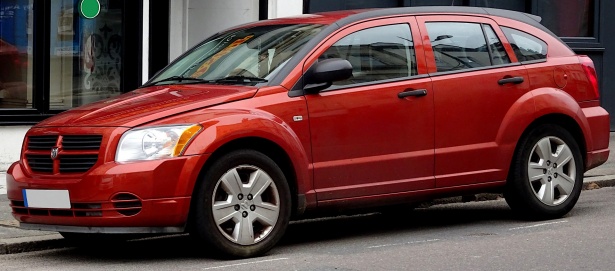We know how great an option it is to own the budget-friendly Dodge Caliber. Even though it is a compact-sized hatchback, its aggressive styling gets all the attention. It might be the case that you are considering buying this car or have recently bought one.
When we talk about Dodge Caliber, there is definitely something a lot more than what meets the eye. The car’s transmission proves to be the biggest elephant in the room. In this article, we are going to shed some light on this issue and understand more about it in-depth.
What is the problem with the transmission in the Dodge Caliber?
Dodge’s hatchback, Caliber, from its introduction down to its last offering year of 2012, was available in two options: manual transmission or a (one-speed CVT) automatic one. While there are not many complaints about the manual five-speed variants, the automatic one is the real troublemaker. So, even if you are getting a fabulous deal on an automatic Caliber, think again!
The most common problems explained by the owners of this automatic car are:
- Overheating
- Whining noises
- CVT failures
As a matter of fact, the initial models are most prone to transmission failures and related issues.
What are the transmission problems you can face?
The transmission problems that you can encounter with your Dodge Caliber include:
Slipping of the car’s transmission
You can easily identify that your car’s transmission is slipping when you feel a monetary loss in the car’s power. Cranky and whining noises most likely accompany such slippage; this is because of a sudden increase in RPM (revolutions per minute).
If you are wondering what could be the reason for the same, then the most common cause for this issue is the worn-out clutch plates. Another cause for transmission slippage can be the contaminated transmission fluid.
Not so smooth and delayed shifting
Delayed shifting of gears or abrupt shifts are both bad for your car’s transmission health. You can easily diagnose this issue if your car takes a noticeable time to shift the gears or you feel a sudden jolt while gear shifting.
If you are facing this issue, then there is a very high chance that your transmission’s hydraulic system has taken a toll. Heavy wear and tear of bands or clutches and malfunction of solenoids may also leave your car with this problem.
Torque converter issues
You should know that something is very wrong with your Caliber’s transmission when you start to notice shuddering while you accelerate.
The root cause can well be the torque converter, which is triggered by some sort of internal damage or worn-out clutch pads.
Stalled or sluggish gear response
When your Dodge’s transmission starts to cause problems, this may even have a negative impact on your engine performance. This negative engine performance is all due to the issue in the transmission owing to the complications related to gear-shifting.
This problem can arise from the way you shift the gears; even less transmission fluid can be the cause of such a mechanical malfunction.
Warning lights
If you have the Dodge Caliber from the later models, you can know about transmission-related discrepancies simply from the warning light on the dashboard.
Wait, there might not even be a transmission problem in the first place. Just because the light is blinking doesn’t mean there is surely a problem in the transmission or any of its components. Even a sensor failure or electrical fault can trigger the light. So, if you see that there is a light illuminating, it is better to see a mechanic.
Overheating
With continuous car usage over prolonged time periods, overheating of the transmission can be a real problem that can leave your car with a smoky odour.
Overheating is simply caused by the failure of the cooling system in place, which may be due to a clogged transmission cooler. If you constantly carry heavy loads in your Dodge Caliber in that case, too, the chances of transmission overheating are much higher.
Unusual noises in the transmission
When the transmission’s internal components are not in their very best shape, chances are they can be making unpleasant sounds.
Such damages are a clear indication that one or more components in the transmission or the drivetrain require repairs or even replacements.
Best practices to follow for better transmission health?
You can ensure a hassle-free and smooth operation by keeping a check on your Dodge Caliber transmission’s health in the following ways:
Checking the transmission fluid levels
You should ideally check the transmission fluid levels at regular intervals with the help of a dipstick. Also, notice the colour of the fluids; if it is dark or burnt, then you better get the fluid changed.
Avoid overloading and towing
We know that your Dodge is very capable of carrying heavy loads or even towing owing to its engine capacity. You must remember that carrying excess weights in the car can put a load on the transmission and, thus, more wear and overheating issues.
Warm up your vehicle first
Whenever you are off for a ride, it is better to let the engine and transmission warm up a bit. By doing so, you allow the fluids to reach optimal operation levels.
Try to avoid power-breaking
If you are among those drivers who press the accelerator while braking, then you need to change that for the sake of your own car. Doing so potentially heats up the transmission, and that excess heat can damage the transmission.
Concluding Remarks
We hope this article helped you know better about the transmission problems. It is recommended that you follow the best practices to keep your transmission in good shape. If you are looking to get components for your transmission or even full transmission parts, then Just Jeep Wreckers is the best place to get such components. You can get all sorts of spare and genuine parts from them in Australia, and that too in a cost-efficient manner.

